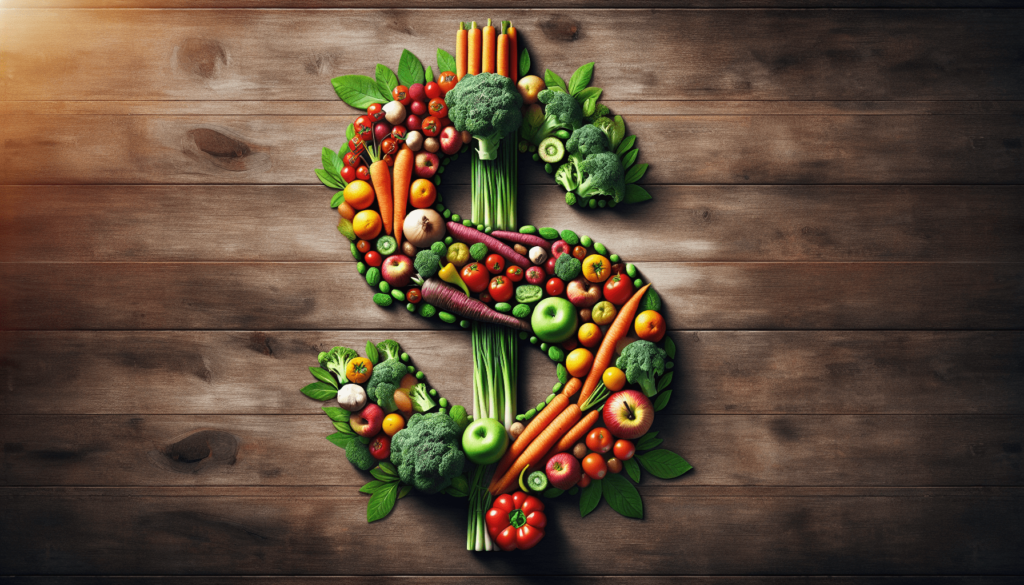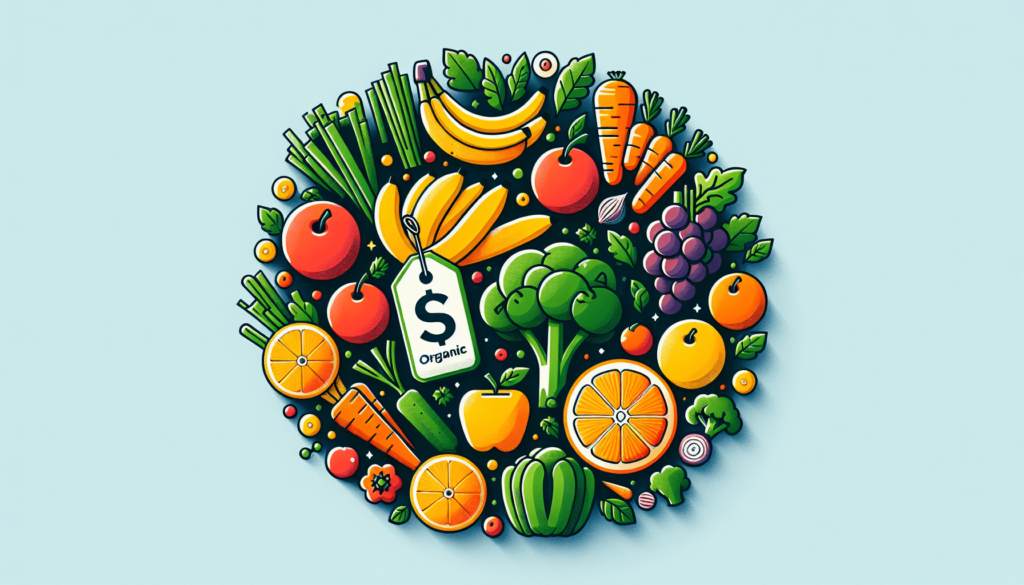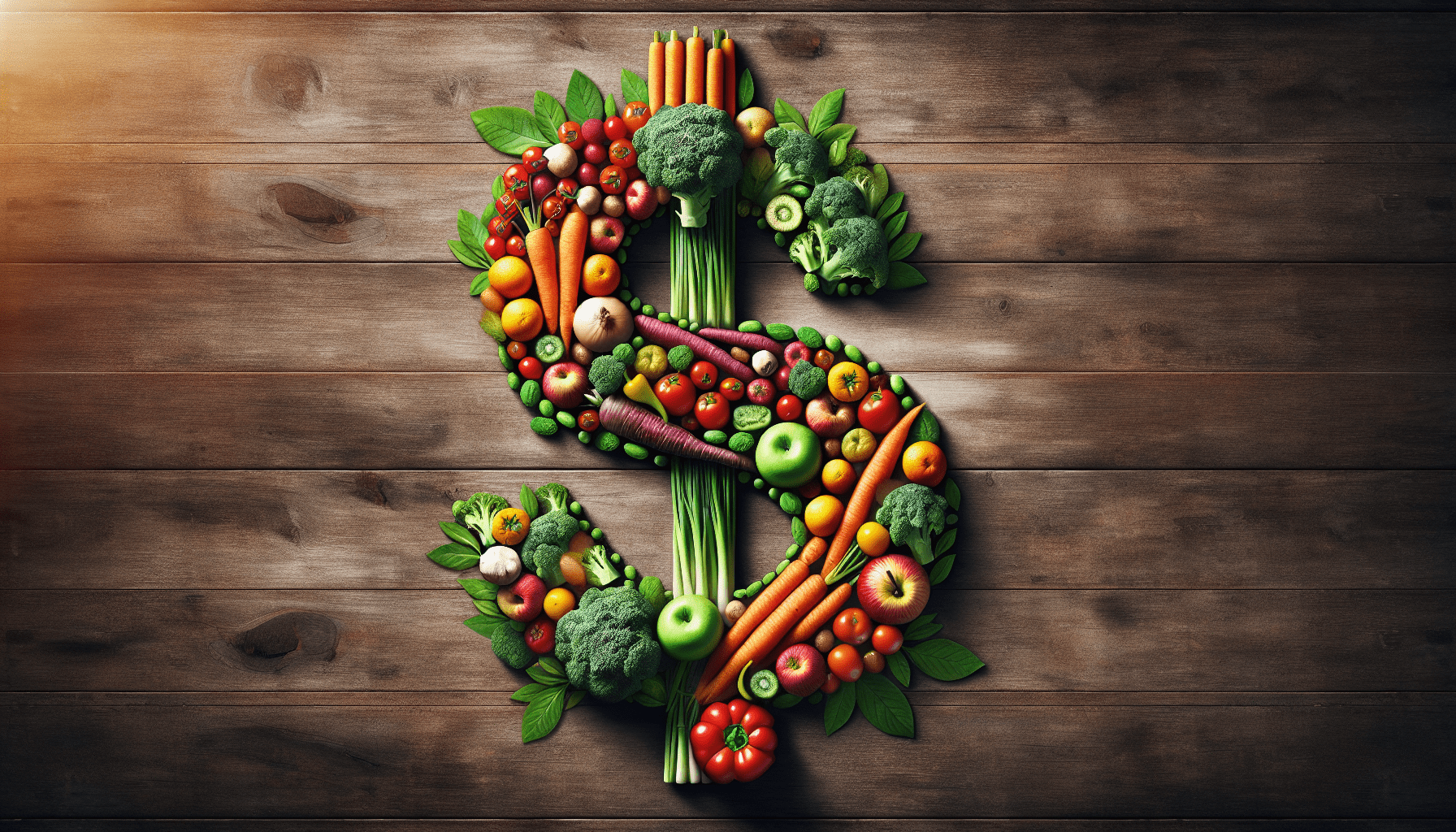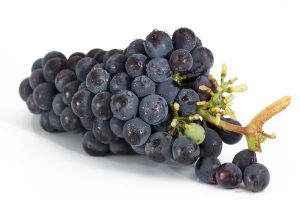Curious about how to incorporate organic products into your shopping routine without breaking the bank? Look no further! In this article, we will guide you through practical tips and tricks that help you navigate the world of organic shopping while staying within your budget. From prioritizing certain foods to taking advantage of discounts, we’ve got you covered. Get ready to enjoy the benefits of organic living without the hefty price tag!

Understand the Benefits of Organic Products
Organic products are free from harmful chemicals and pesticides
One of the major benefits of organic products is that they are free from harmful chemicals and pesticides. Conventionally grown crops are often treated with synthetic pesticides, herbicides, and fertilizers, which can have detrimental effects on human health. Organic products, on the other hand, are produced using natural methods that prioritize the health of the ecosystem. By choosing organic, you can minimize your exposure to potentially harmful substances and enjoy food that is truly pure and healthy.
Organic farming promotes sustainable practices
Another advantage of organic products is that organic farming promotes sustainable practices. Organic farmers work in harmony with nature to preserve and protect the environment. They use techniques such as crop rotation, composting, and natural pest control to maintain soil fertility, conserve water, and promote biodiversity. By supporting organic agriculture, you are contributing to the conservation of natural resources and the long-term sustainability of our planet.
Organic products are often higher in nutritional value
Did you know that organic products are often higher in nutritional value? Studies have shown that organic fruits and vegetables contain higher levels of essential vitamins, minerals, and antioxidants compared to conventionally grown ones. This is because organic farming practices focus on nurturing the soil, which leads to crops that are more nutrient-dense. By choosing organic, you are not only reducing your exposure to harmful chemicals but also maximizing the nutritional benefits of the food you consume.
Supporting organic agriculture helps protect the environment
Choosing organic products goes beyond personal health benefits; it also helps protect the environment. Conventional farming practices often result in soil erosion, water pollution, and the depletion of natural resources. In contrast, organic agriculture promotes soil health, safeguarding water quality, and preserving biodiversity. By supporting organic farmers, you are playing a part in the conservation of our ecosystem and ensuring a healthier planet for future generations.
Evaluate Your Priorities and Budget
Determine the importance of organic products in your life
Before embarking on your organic journey, it’s essential to determine the importance of organic products in your life. Consider your personal values, health goals, and environmental concerns. Are you passionate about eating food that is free from harmful chemicals? Do you prioritize sustainability and supporting local agriculture? Understanding your priorities will help you make informed decisions and allocate your budget accordingly.
Set a realistic budget for organic purchases
Creating a realistic budget is crucial when buying organic products. While organic options may be slightly more expensive than conventional ones, it doesn’t mean you have to break the bank. Assess your monthly income and expenses to determine how much you can comfortably allocate towards organic purchases. By setting a budget, you can ensure that you are making sustainable choices without compromising your financial stability.
Identify the organic products you consume most frequently
Take note of the organic products you consume most frequently. Start by identifying the foods that make up the majority of your diet. These staple items could include fruits, vegetables, dairy products, or grains. By knowing which organic products you consume the most, you can prioritize your budget and focus on purchasing these items in their organic form.

Shop at Farmers Markets
Farmers markets often have a wide variety of organic products
Farmers markets are a great place to find a wide variety of organic products. Many local farmers who sell their produce at these markets adhere to organic farming practices. You can find an array of fresh fruits, vegetables, meat, dairy, and even organic pantry staples like grains and spices. By shopping at farmers markets, you not only support local farmers but also have the opportunity to connect directly with the people who grow your food.
Local farmers markets may offer lower prices compared to grocery stores
If you’re looking for budget-friendly organic options, farmers markets may be the answer. In some cases, the prices at farmers markets can be lower compared to grocery stores, particularly for locally grown produce. By eliminating the middlemen and buying directly from farmers, you can often find organic products at more affordable prices. Keep an eye out for special deals, bulk discounts, or end-of-day sales to maximize your savings.
Connect with local farmers to learn about their growing practices
One of the unique advantages of shopping at farmers markets is the opportunity to connect with local farmers and learn about their growing practices. Strike up conversations with the farmers, ask them about their organic farming methods, and express your interest in supporting sustainable agriculture. Building relationships with local farmers not only enhances your shopping experience but also allows you to have a deeper understanding of the food you consume.
Join a Community Supported Agriculture (CSA) Program
CSAs provide fresh, organic produce directly from local farms
Joining a Community Supported Agriculture (CSA) program is an excellent way to access fresh, organic produce directly from local farms. CSAs work by offering memberships to individuals who receive a share of the farm’s seasonal harvest. Members typically receive weekly or bi-weekly boxes of assorted organic fruits and vegetables. By participating in a CSA program, you not only support local agriculture but also enjoy a regular supply of high-quality, locally grown organic produce.
Membership fees are often more affordable than buying organic from stores
Contrary to what some may think, CSA membership fees are often more affordable than buying organic products from stores. Since CSAs eliminate the middlemen and operate on a direct-to-consumer model, they can offer organic produce at competitive prices. Additionally, CSA members often benefit from an abundant supply during peak growing seasons, further maximizing the value of their membership fees. By investing in a CSA, you can access a variety of organic produce while supporting local farmers.
CSAs encourage seasonal eating and support local agriculture
One of the benefits of joining a CSA is that it encourages seasonal eating and supports local agriculture. CSAs provide members with produce that is in season, which means you get to enjoy the freshest and most flavorful fruits and vegetables. By aligning your diet with the seasons, you not only experience a diverse array of foods but also support the natural farming rhythms of the local community. CSAs promote a closer connection between consumers and farmers while fostering a sense of community and sustainable eating practices.

Grow Your Own Organic Produce
Start a small garden in your backyard or use containers if space is limited
Growing your own organic produce is a rewarding and cost-effective way to incorporate organic food into your diet. If you have some outdoor space, consider starting a small garden in your backyard. Choose organic seeds or seedlings and learn about the specific growing requirements of different plants. If space is limited, you can opt for container gardening and grow herbs, salad greens, or even tomatoes on your balcony or windowsill. By growing your own food, you have complete control over the cultivation process and can enjoy the freshest organic produce right at home.
Growing your own food saves money in the long run
One of the significant advantages of growing your own organic produce is the long-term savings it offers. While there may be upfront costs such as seeds, tools, or organic soil amendments, the investment pays off in the long run. With a productive garden or containers, you can harvest a continuous supply of organic fruits and vegetables throughout the growing season. Not only will you save money on grocery bills, but you will also enjoy the satisfaction of knowing exactly how your food was grown.
Research organic gardening methods to ensure successful results
To ensure successful results with your organic garden, it is essential to research organic gardening methods. Organic gardening involves using natural techniques to nourish the soil, control pests, and promote plant growth. This includes practices such as composting, crop rotation, companion planting, and natural pest deterrents. By familiarizing yourself with these methods, you can create a thriving organic garden that yields abundant and healthy produce.
Buy in Bulk
Purchasing organic products in bulk can lead to significant savings
Buying organic products in bulk can be a cost-effective strategy to save money. Purchasing in larger quantities often leads to significant savings, as many retailers offer discounts for bulk purchases. Check your local grocery stores, health food stores, or co-ops for bulk options on organic pantry staples like rice, beans, nuts, and dried fruits. By stocking up on these items, you not only save money but also reduce the packaging waste associated with individual-sized products.
Join a wholesale club or co-op for discounted organic options
To access even more bulk buying opportunities for organic products, consider joining a wholesale club or co-op. These membership-based establishments offer a wide range of organic options at discounted prices. By pooling resources and purchasing power, co-op members can take advantage of lower wholesale prices typically only available to businesses. Moreover, being part of a co-op fosters a sense of community and encourages collaboration in supporting sustainable consumption.
Store bulk purchases properly to maintain freshness
Properly storing your bulk purchases is essential to maintain their freshness and quality. Invest in airtight containers or mason jars to keep dry goods such as grains, beans, and spices free from moisture and pests. For perishable items like fresh produce, consider freezing or canning them to extend their shelf life. By implementing effective storage practices, you can ensure that your bulk purchases remain fresh and usable, maximizing the value of your investment.

Opt for Store-Brand Organic Products
Many grocery stores have their own line of organic products
If you’re looking for affordable organic options, consider opting for store-brand products. Many grocery stores now offer their own line of organic products, which are typically priced lower than name brands. These store-brand organic items often undergo the same rigorous certification process as more expensive counterparts, ensuring their organic integrity. By choosing store-brand organic products, you can save money without compromising on quality.
Store-brand organic items are often cheaper than name brands
Store-brand organic items are often cheaper than name brands, making them an ideal choice for budget-conscious consumers. Since store-brand products don’t have the added costs of marketing and advertising associated with name brands, they can pass on the savings to consumers. In many cases, store-brand organic options are produced by the same manufacturers as popular brands but are sold at a lower price point. By comparing prices and reading labels, you can find quality store-brand organic products that fit your budget.
Compare prices and quality to find the best options
When purchasing store-brand organic products, it’s important to compare prices and assess quality. While price is a significant consideration, it shouldn’t be the sole factor in your decision-making process. Take the time to read ingredient lists, nutritional information, and any certifications displayed on the packaging. By comparing prices and evaluating the quality of store-brand organic options, you can find the best options that meet your budgetary and nutritional needs.
Search for Sales, Coupons, and Discounts
Check weekly flyers and websites for organic product sales
To find the best deals on organic products, be proactive in searching for sales and discounts. Check your local grocery stores’ weekly flyers for promotions on organic items. Many stores dedicate specific days or weeks to organic sales, offering discounted prices on a range of products. Additionally, keep an eye out for online sales and promotions on websites that specialize in organic and natural products. By staying informed about sales, you can stock up on your favorite organic items at reduced prices.
Use mobile apps and online platforms for digital coupons and discounts
Make use of mobile apps and online platforms that offer digital coupons and discounts for organic products. Many grocery store chains have their own apps or loyalty programs that provide access to exclusive coupons and personalized offers. Additionally, there are online platforms that aggregate digital coupons for organic items, making it easy to find savings in one place. By leveraging technology, you can find valuable discounts that help make organic shopping more affordable.
Subscribe to newsletters or loyalty programs for exclusive offers
Subscribing to newsletters or joining loyalty programs is a great way to stay updated on exclusive offers for organic products. Many organic brands or stores offer regular newsletters that include information about upcoming promotions, new product launches, and money-saving opportunities. By signing up for these newsletters or loyalty programs, you can be the first to know about discounts and take advantage of special offers tailored to your organic shopping needs.

Focus on Essentials and Prioritize Organic
Allocate your budget to prioritize organic versions of essential products
When shopping on a budget, it’s essential to allocate your budget to prioritize organic versions of essential products. Focus on items that you consume regularly or those that have a higher pesticide residue when conventionally grown. This may include produce like strawberries, spinach, apples, or dairy products like milk and eggs. By prioritizing these essentials, you can ensure that you are making the most impactful organic choices within your budget.
Choose organic for items that are commonly consumed or have high pesticide residues
Certain food items are more prone to pesticide residues or are commonly consumed, making them ideal candidates for organic purchases. The Environmental Working Group’s (EWG) “Dirty Dozen” list is a valuable resource that identifies produce with the highest pesticide residues. By referring to this list and focusing on commonly consumed items, such as apples, strawberries, grapes, and leafy greens, you can make informed decisions about which organic products to prioritize.
Gradually expand your organic purchases as your budget allows
While it may not be feasible to switch all your purchases to organic overnight, you can gradually expand your organic purchases as your budget allows. Start by incorporating one or two new organic items into your shopping list each week. This gradual approach allows you to adapt to the slightly higher prices of organic products without feeling overwhelmed. As you become more accustomed to buying organic, you can continue to expand your selection and organic purchases.
Reduce Food Waste
Plan meals and create shopping lists to avoid buying unnecessary items
To reduce food waste and make the most of your organic purchases, it’s important to plan meals and create shopping lists. Take a few minutes before heading to the grocery store to plan out your meals for the week. This will ensure that you buy only what you need and minimize impulse purchases. By sticking to a list and avoiding unnecessary items, you can reduce food waste, save money, and fully utilize your organic products.
Properly store and preserve organic products to prevent spoilage
Properly storing and preserving organic products is key to preventing spoilage and extending their shelf life. Fresh produce should be stored according to its specific requirements. Some items, like leafy greens, are best stored in airtight containers or bags in the refrigerator, while others, like tomatoes, should be kept at room temperature. Familiarize yourself with proper storage techniques for different types of organic products to ensure they stay fresh for as long as possible.
Repurpose leftovers and utilize all parts of fruits and vegetables
To further reduce food waste, get creative with leftovers and utilize all parts of fruits and vegetables. Leftover vegetables can be transformed into soups or stir-fries, while fruit that is past its prime can be used to make smoothies or baked goods. Additionally, you can use vegetable scraps to make homemade stocks or compost them to enrich your garden soil. By finding ways to repurpose and utilize all parts of your organic produce, you can minimize waste and fully enjoy the benefits of your organic purchases.




